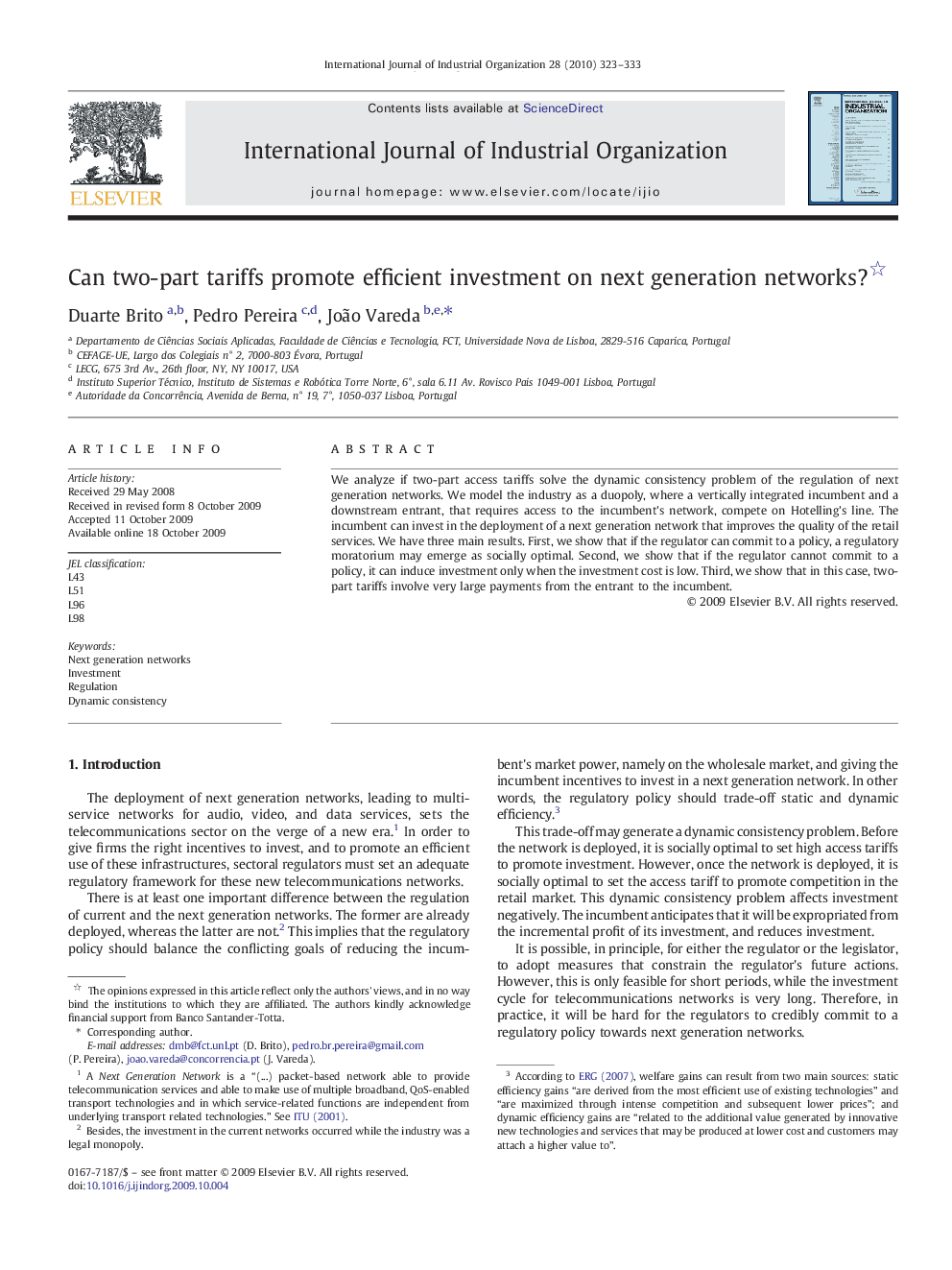| Article ID | Journal | Published Year | Pages | File Type |
|---|---|---|---|---|
| 5078530 | International Journal of Industrial Organization | 2010 | 11 Pages |
Abstract
We analyze if two-part access tariffs solve the dynamic consistency problem of the regulation of next generation networks. We model the industry as a duopoly, where a vertically integrated incumbent and a downstream entrant, that requires access to the incumbent's network, compete on Hotelling's line. The incumbent can invest in the deployment of a next generation network that improves the quality of the retail services. We have three main results. First, we show that if the regulator can commit to a policy, a regulatory moratorium may emerge as socially optimal. Second, we show that if the regulator cannot commit to a policy, it can induce investment only when the investment cost is low. Third, we show that in this case, two-part tariffs involve very large payments from the entrant to the incumbent.
Related Topics
Social Sciences and Humanities
Economics, Econometrics and Finance
Economics and Econometrics
Authors
Duarte Brito, Pedro Pereira, João Vareda,
